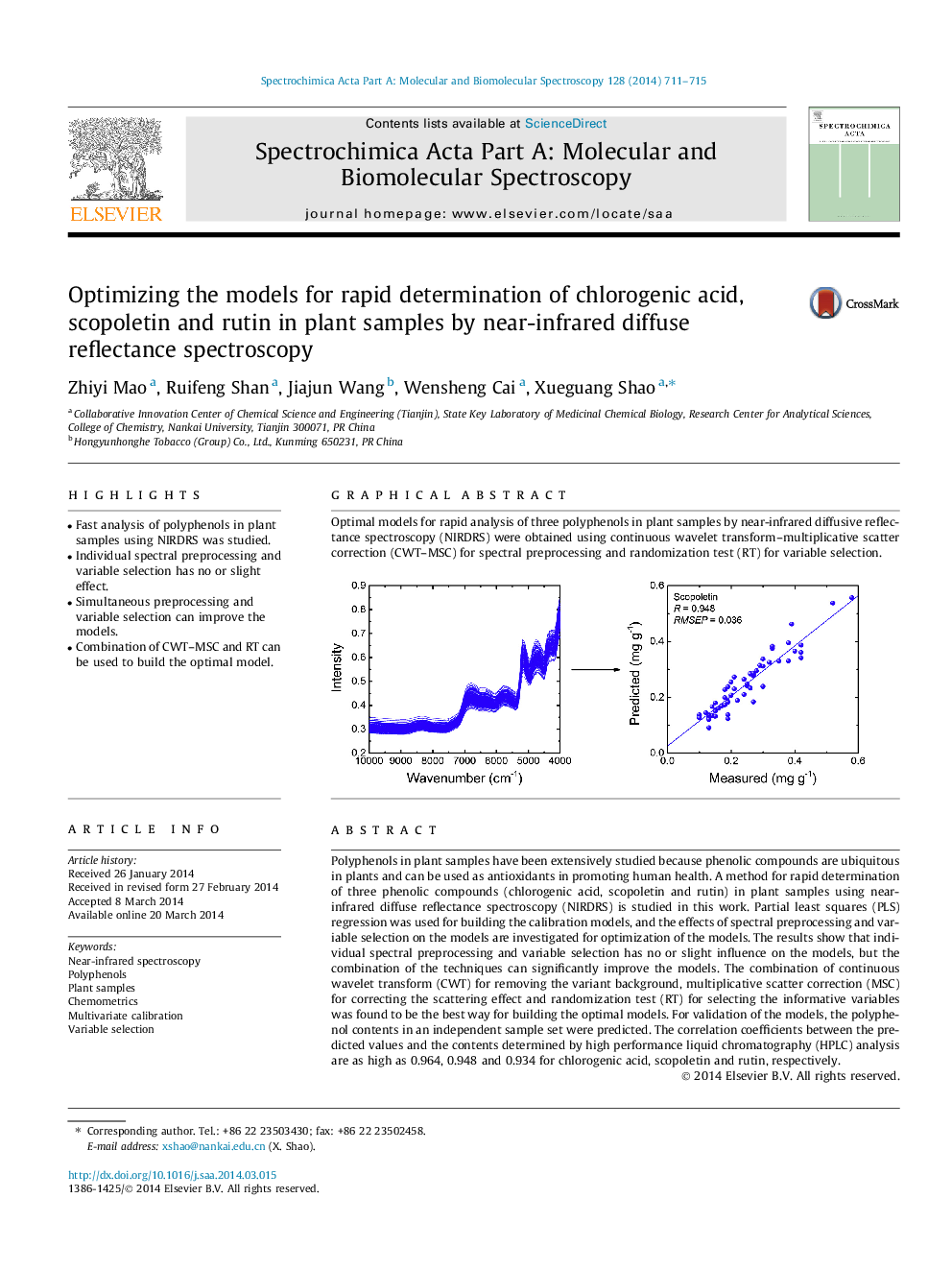| Article ID | Journal | Published Year | Pages | File Type |
|---|---|---|---|---|
| 1230627 | Spectrochimica Acta Part A: Molecular and Biomolecular Spectroscopy | 2014 | 5 Pages |
•Fast analysis of polyphenols in plant samples using NIRDRS was studied.•Individual spectral preprocessing and variable selection has no or slight effect.•Simultaneous preprocessing and variable selection can improve the models.•Combination of CWT–MSC and RT can be used to build the optimal model.
Polyphenols in plant samples have been extensively studied because phenolic compounds are ubiquitous in plants and can be used as antioxidants in promoting human health. A method for rapid determination of three phenolic compounds (chlorogenic acid, scopoletin and rutin) in plant samples using near-infrared diffuse reflectance spectroscopy (NIRDRS) is studied in this work. Partial least squares (PLS) regression was used for building the calibration models, and the effects of spectral preprocessing and variable selection on the models are investigated for optimization of the models. The results show that individual spectral preprocessing and variable selection has no or slight influence on the models, but the combination of the techniques can significantly improve the models. The combination of continuous wavelet transform (CWT) for removing the variant background, multiplicative scatter correction (MSC) for correcting the scattering effect and randomization test (RT) for selecting the informative variables was found to be the best way for building the optimal models. For validation of the models, the polyphenol contents in an independent sample set were predicted. The correlation coefficients between the predicted values and the contents determined by high performance liquid chromatography (HPLC) analysis are as high as 0.964, 0.948 and 0.934 for chlorogenic acid, scopoletin and rutin, respectively.
Graphical abstractOptimal models for rapid analysis of three polyphenols in plant samples by near-infrared diffusive reflectance spectroscopy (NIRDRS) were obtained using continuous wavelet transform–multiplicative scatter correction (CWT–MSC) for spectral preprocessing and randomization test (RT) for variable selection.Figure optionsDownload full-size imageDownload as PowerPoint slide
